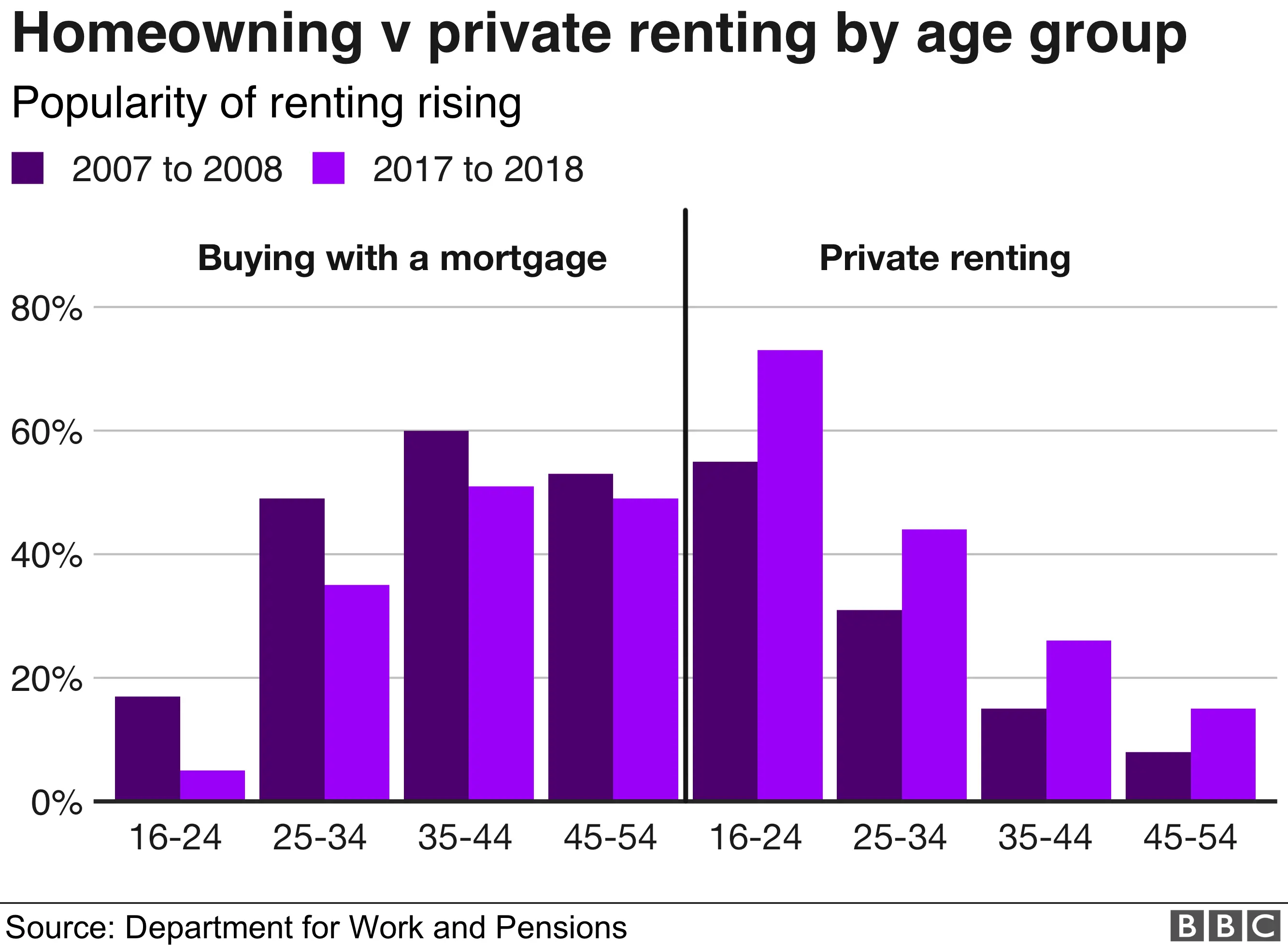Coronavirus: Tenants 'should get a rent break'
 Getty Images
Getty ImagesTenants struggling to pay their rent owing to the impact of coronavirus must be dealt with "sympathetically" by landlords, a trade body has said.
Millions of people will see their jobs and incomes hit by the economic effects of the virus.
Banks have told mortgage holders they can negotiate a payment holiday.
The Residential Landlords Association says members should also allow affected tenants to pay later. Others are calling for a more radical approach.
What is the issue for paying rent?
Many people, often young, are being asked to take unpaid leave, may be seeing contracts dry up, or may be moved onto lower statutory sick pay, as businesses face the financial impact of the outbreak.
The loss of income puts pressure on what is often the tenants' biggest bill, the monthly rent.

A host of banks have said to people in a similar position who have a mortgage that they can defer their home loan repayments for up to three months, although individual banks have different rules.
This does not generally extend to landlords' buy-to-let mortgages, but landlords' groups have called on banks to treat these in the same way.
No such widespread policy is in place for tenants wanting a similar pause.
What advice is being given?
Landlords typically have about six or seven properties that they rent out.
The Residential Landlords Association, which has members from England and Wales, said that if tenants find themselves in this situation, landlords should allow rent to be paid at a later date, assuming that the tenant has a good payment history.
John Stewart, policy manager for the association, said landlords should be sympathetic, allowing people to pay more in later months to cover any missed payments now.
"Whilst a minority of tenants may use the outbreak as an excuse to avoid paying rent, most will be genuine and suffering stress," he said.
"If there hasn't been a history of arrears or delayed payment, then it is better to accept the situation and work with the tenant to repay any arrears when things return to normal."

- EASY STEPS: How to keep safe
- A SIMPLE GUIDE: What are the symptoms?
- GETTING READY: What's the UK's plan?
- TRAVEL PLANS: What are your rights?
- IN-DEPTH: Coronavirus pandemic

What other suggestions have been made?
Some feel that tenants seeing their income drop should be given more support as, unlike a landlord, they have no asset to fall back on.
Richard Murphy, professor of practice in international political economy at City University of London and the author of the Tax Research blog, said that tenants should be given three months rent-free.
The cost would be carried by the landlords who, he argued, had an asset and would still need the tenants in the future.
He added that for many tenants, this crisis would create a major cash-flow problem, and so action was needed to keep people in their homes.
What other issues are in play?
The benefits system allows applications for universal credit if people lose incomes, under certain criteria.
Some landlords will have insurance cover if rent is not paid at all, but the small print of those policies may rule out some claims.
Landlords should consider whether their tenants are vulnerable, for example if they are elderly, and think about extra support, Mr Stewart said.
Particular care should be taken for tenants living in houses of multiple occupancy who would often be living in close proximity and sharing facilities. The advice is to ensure they keep to separate crockery and cutlery, clean they own dishes, and avoid communal areas if possible.
